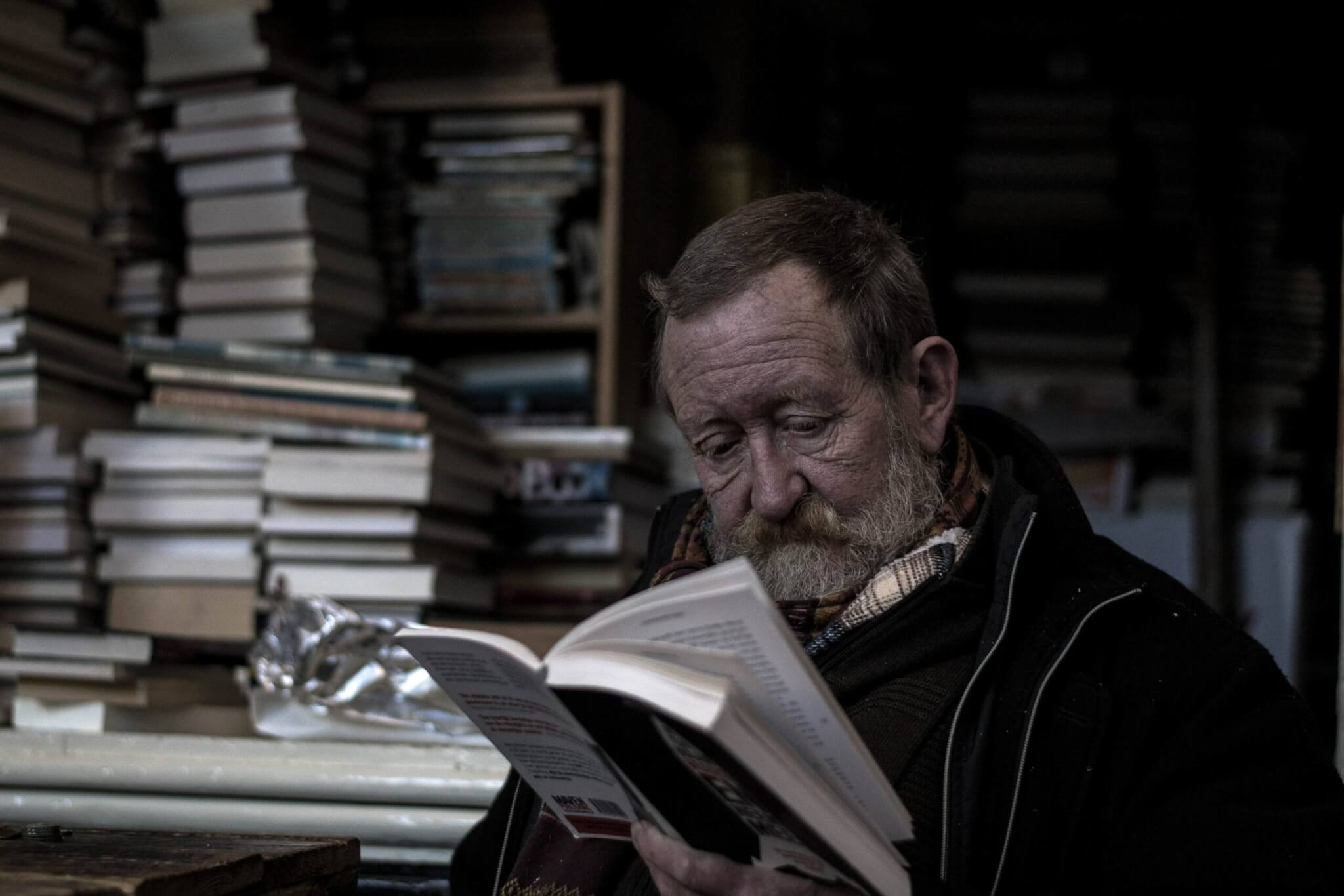Every Teacher Should Read Fiction

I am nearly certain I once read a book by Peter Brown where he claimed every good historian must be a regular reader of fiction. I say “nearly certain” because the claim has, over the last decade, taken on a mythic status in my heart and myths, by definition, arise from uncertain origins. For the life of me, I cannot find the book and the passage where Brown makes this claim. Alas, perhaps some less forgetful reader will break the spell for me in the comments section.
As I recall, Brown claimed that reading fiction helps the historian want to make sense of the people he studies. If the historian does not read enough fiction, he quits trying to see his subjects as reasonable and he comes to despise them. In hating his subjects, the historian no longer sees them clearly, because anger clouds our judgment. However, fiction trains us to see the hidden logic at work in the hearts of people unlike ourselves. There is a talismanic power in fiction which inclines the reader to side with whoever sits at the center of the story, even if the character is a kind of person the reader does not like.
Readers intuitively supply the hidden rational to justify the main character’s actions. We reflexively defend a character’s cause against his naysayers or foes. Fiction activates a sort of defensive maternal instinct in the reader to stick up for the main character no matter what—even if we must privately chastise the same character later in our hearts. The strangest paradoxes of sentiment and pleasure are possible in fiction, for fiction sometimes leads us to say, as in the case of someone like Edward Rochester, “Well, I find him unlikable, but I sort of like him for his unlikableness.”
Perhaps I should just come to my point, for there is no sophisticated, academic way of putting it, really: Fiction makes us love.
It is for this reason that teachers need to read fiction—and not just history teachers, but all teachers. Geometry teachers, biology teachers, art teachers, soccer coaches. And all teachers need to read fiction about children who are the same age as their students. High school teachers need to read fiction about teenagers. Middle school teachers need to read fiction about early adolescence. The longer the teacher teaches, the more he gains from reading fiction about his students.
Why?
It is one thing to love your students out of a sense of professional obligation and duty, but it is another thing for a grown man to work hard to remember the teenage mind, the teenage heart, and to see the world with teenage eyes. In the same way any word becomes phonetic gibberish when repeated over and over and over, a teacher must be careful to not become inoculated against teenage helplessness—the lack of self-awareness, the obsession with ephemeral things, the inexplicable cruelty (think of British boarding schools), the complete indifference to money and stability, the absurd yearning for excitement. The thing is, if you don’t read enough fiction, you can easily come to believe that kids haven’t always been like this—or that you were any different at their age. Fiction about youth corrects these pretentions, though. Fiction grants a more universal knowledge of youth—and in making youth universal, fiction reconciles the teenagers you teach to nature. A man may turn up his nose at nature only if he is willing to turn up his nose at God, Whose glory and person is revealed in nature. In this sense, teenagers are no different from carnations, field mice, or volcanoes, all of which are glorious in their own ways.
To dislike teenagers is no less impious than to dislike infants or the elderly, though high school teachers are tempted to dislike teenagers simply because they are so often vexed by them. This really isn’t the fault of teenagers, though, but an accident of the job. Every kind of person poses some sort of hassle or puzzle for other kinds of people—all the more so when one kind of person (the adult teacher) spends all his time talking to another kind of person (the sixteen-year-old). However, if you spend seven hours a day, five days a week, nine months a year in the presence of teenagers, you have a moral obligation to understand them, to like them, to love them, to delight in them, and to discipline them and speak to them in ways that “cut them to the heart” (Acts 2:37). Reading fiction about youth helps a teacher do all these things. The more vexed the teacher finds himself by his students, the more necessary fiction becomes—and the more of a mercy fiction becomes, because the way fiction plays on the heart defies a logical explanation.

Joshua Gibbs
Joshua Gibbs teaches online classes at GibbsClassical.com. He is the author of How To Be Unlucky, Something They Will Not Forget, and Blasphemers. His wife is generous and his children are funny.










